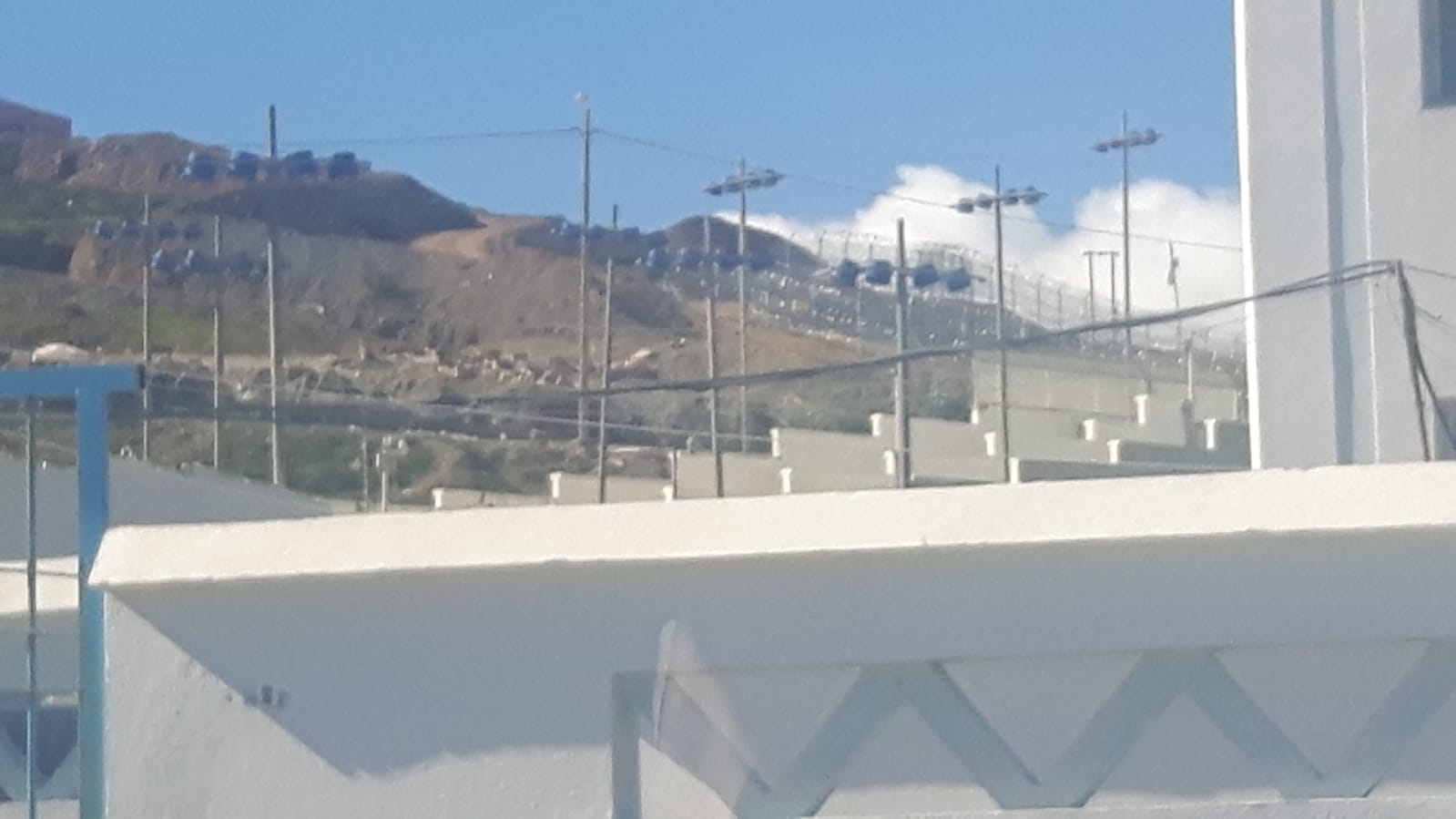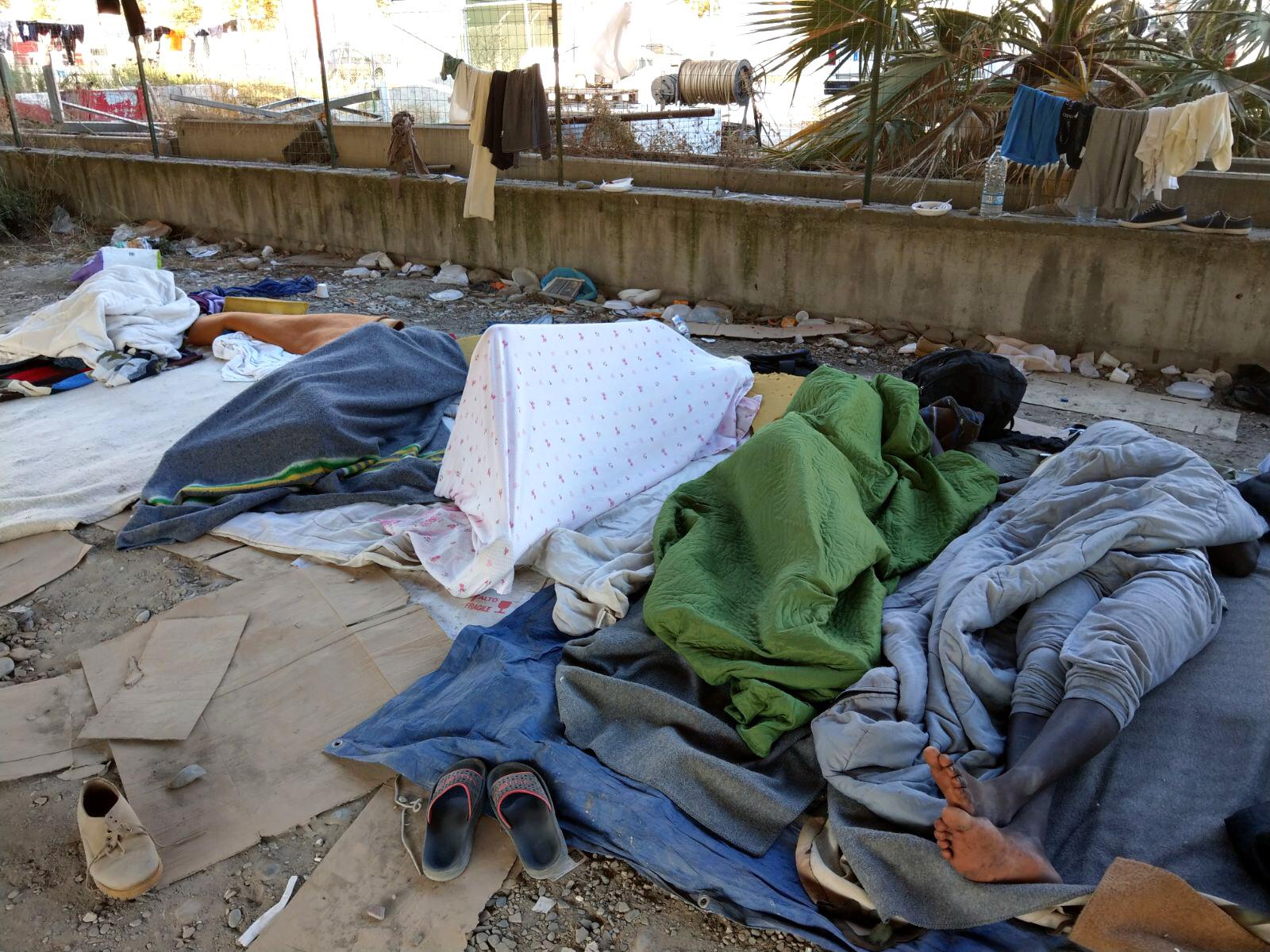By Selma Mesic, RRE Greece and Balkans Coordinator
Refugees and asylum seekers in transit at the French-Italian border have faced critical conditions for years[1]. With the onset of the Covid-19 pandemic, the situation has further deteriorated in the Italian border town of Ventimiglia. RRE’s latest report[2] investigates and outlines the gravely negative impact of the pandemic on people on the move at the French-Italian border. Our findings reaffirm existing observations by civil society actors on the ground and highlight disconcerting developments in all vital respects of life for people on the move.
Civil society organisations are witnessing a weakening of already stretched services, resulting in an overall decline in living conditions for refugees and asylum seekers in Ventimiglia. Covid-related restrictions have also prevented organisations and solidarity groups from operating in the area and providing essential services and assistance throughout large periods during the pandemic.
With regard to shelter, the closure of Camp Roya in 2020 – the only reception centre at the time – represented one of the biggest challenges caused by the pandemic. It left people on the move without a safe place to sleep, forcing them to take shelter under bridges, beaches, and abandoned buildings while facing severe health risks – especially in the case of vulnerable individuals – due to their inability to take proper protective measures against Covid-19.
No official shelter provision has been established since the centre’s closing. Despite this, occupied buildings in Ventimiglia continue to be evicted, and people find themselves destitute on the streets or in informal settlements without heating, electricity, or hygiene facilities. Without a safe place to sleep, individuals are increasingly exposed to crime organisations and risk becoming victims of violence and trafficking. Women and children are particularly vulnerable in these situations.

Moreover, despite facing harrowing journeys while crossing the Central Mediterranean, many women and girls faced, and continue to face, trafficking and sexual abuse or the risk of becoming victims to it. Inadequate assessments, follow-up measures, and service provisions aimed at these women and girls has been at the core of an ongoing failure to offer them sufficient protection and aid for years.
Existing infrastructures were stretched even further during Covid-19. Likewise, unaccompanied children have been left to their own devices. They continuously face detention, violence, and pushbacks at the border with no regard for their rights or vulnerable status as children.
The report further highlights that access to healthcare remains limited and overly complicated, and that the pandemic has hindered the medical care services that were operating for refugees and asylum seekers. Some of the services provided by organisations on the ground, such as psychological support and one-on-one visits, have had to be suspended for several months due to inadequate infrastructure. Additionally, even when people do get access to medical care, it is often insufficient or low quality.
Our analysis of partner data on pushbacks and detention at the Ventimiglia border reveals that these illegal practices continue undeterred and at a worrying rate despite the health risks facing people on the move. Individuals and families are detained in small containers which do not respect minimum standards of hygiene, safe distancing, or safe spaces for women and children, and detainees are often abused.
Moreover, the requirement for CPR tests at the border is an additional barrier for border crossing. We noted a lower number of pushbacks following a new French-Italian police agreement signed in December 2020, a consequence of fewer arrivals and increased controls on Italian territory. This has resulted in Ventimiglia’s increased militarisation, constant patrols of the trains to France, and document controls at train stations based solely on racial profiling.
It is evident that while the pandemic presented a crucial opportunity to acknowledge the need for, and increase access to, shelter, healthcare, and protection for people on the move, it merely exacerbated a deplorable situation further.
Endnotes
[1] See Refugee Rights Europe, Report, In dangerous transit, 2017
[2] https://refugee-rights.eu/wp-content/uploads/2021/07/RRE-Progetto20k_TheExacerbationOfACrisis.pdf




